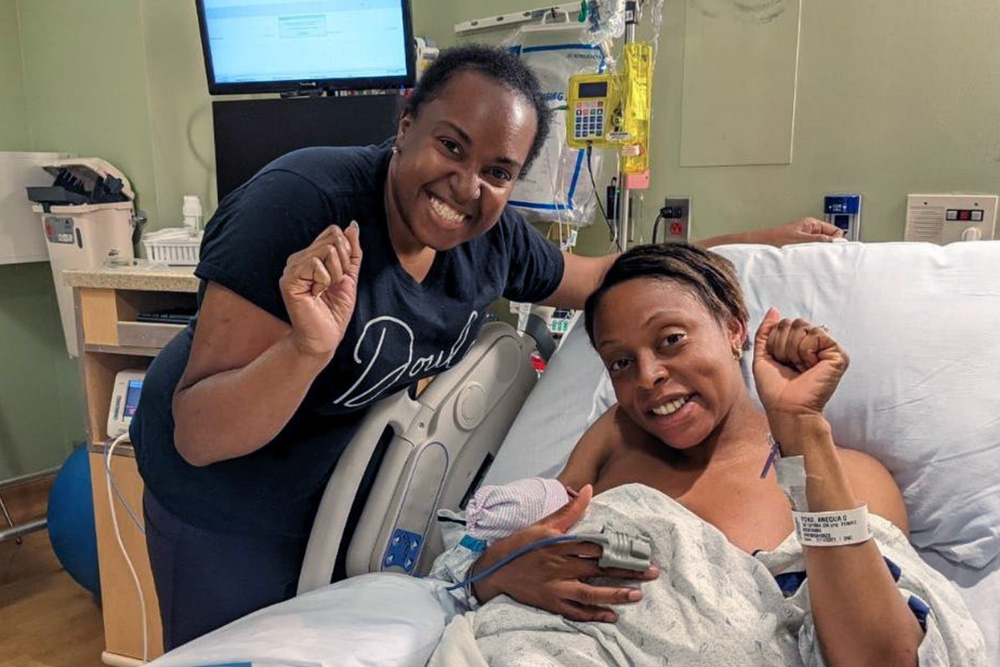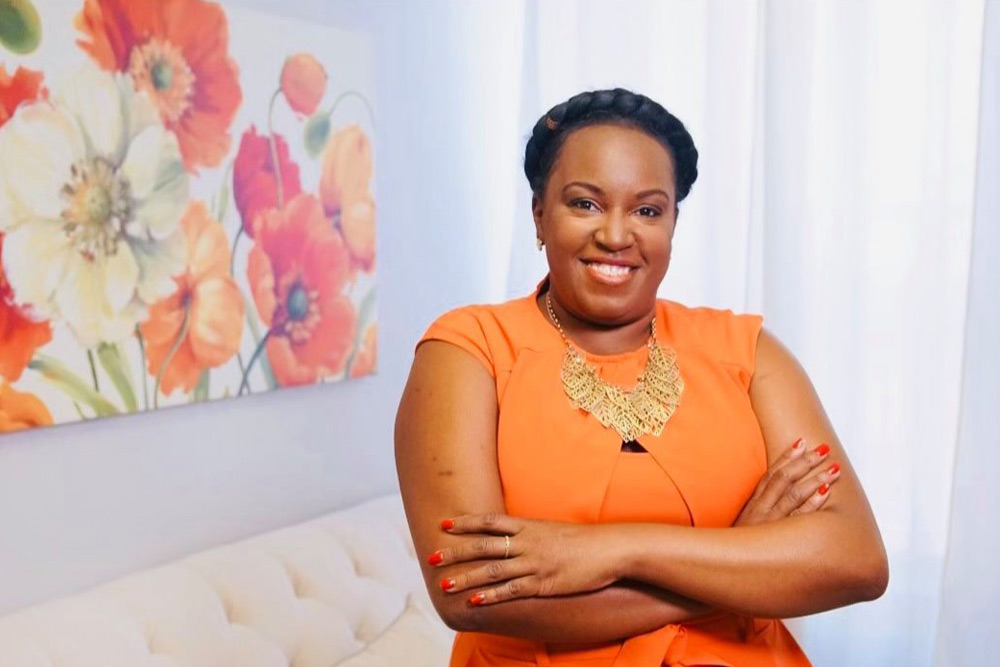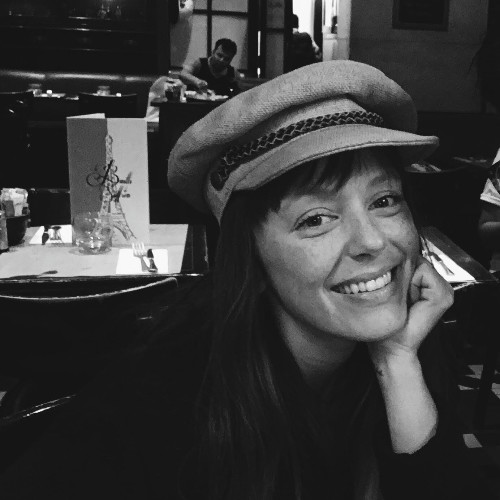How Black Doulas Are Changing Maternal Health Care

There's power in women of color serving one another through pregnancy and into parenthood. One Black birth doula shares her heart for birth work and how it's positively impacting Black patients.
Expert Source: Amber Churn, CD
Childbirth has the potential to be equally healing as it is transformative.
For a pregnant person, it’s an opportunity to claim complete ownership over their body and believe that the deep-seated instincts they possess are good. Trusting that they can accomplish the monumental task of laboring and delivering their baby—and then seeing it come to fruition—can mend parts of the past and pave the way for a renewed future.
This is the heartbeat of the work of Amber Churn, a certified childbirth doula and founder of Black Birth Nerds, who currently services patients and their families in the cities of New York and Atlanta. She works primarily with Black women, whom she says have a longstanding history of receiving inadequate medical care from physicians due to disparities in health coverage, patient-provider distrust, and a lack of proper prenatal education.
Dealing with these discrepancies and barriers during the vulnerable time of pregnancy makes it hard for Black patients to know that medical professionals are for them, explains Churn.
Learning From the Past
Provider distrust is a shared experience amongst the Black community steeped in a dark history of horrific events and dismissive actions from doctors.
Marion Sims, touted as the “Father of Gynecology,” perfected a technique to repair fistulas, which are holes between the vagina and the bladder or rectum that can lead to incontinence, by conducting routine, excruciating experimental surgeries on slaves without the use of anesthesia. The 19th-century physician continued using Black women as medical test subjects for a host of other unethical experiments over the span of his practice, operating under the false and racist notion that Black people did not feel pain.
Amber Rose Isaac was a 26-year-old expectant mom from the Bronx when she tragically died during an emergency C-section before getting to meet her son. Her platelet levels had been falling, but she wasn’t able to see an in-person doctor, even at seven months pregnant, due to the coronavirus pandemic.
Her condition worsened, and she was finally admitted to a medical center months after her worries began; three days later, her family said doctors induced her labor when they learned Isaac developed HELLP (Hemolysis, Elevated Liver Enzymes, and Low Platelets) syndrome, a potentially life-threatening pregnancy complication usually considered to be a severe variant of preeclampsia.
Her partner was barred from being in the room during her cesarean and she died without loved ones around her. Before her surgery, Isaac tweeted that she couldn’t wait to tell everyone about her experience dealing with “incompetent doctors,” further solidifying her feelings of being brushed off during her pregnancy.
Following her heartbreaking death, Isaac became a subject in the documentary, Aftershock, that tells the story of two families reeling with the loss of loved ones who were failed by the maternal health system after experiencing childbirth complications. Churn says that the notion of Black patients not feeling heard or respected by a provider is nothing new, and unfortunately, neither is the outcome of Black maternal death.
“When Black women in the No. 1 country in the world for medical technology and accessibility are dying in childbirth, there is something systematically wrong … African American mothers have also been dying exponentially more in childbirth than white women,” she says.
The Centers for Disease Control (CDC) reports that Black women in the U.S. are up to three times more likely to die from pregnancy or childbirth-related causes than white women, an issue that’s echoed globally for hundreds of thousands of pregnant people who struggle to give birth in poorer countries, especially if they need to deliver in a medical facility versus at home.
This is why midwifery and doula services have been critical for centuries, especially for people of color. Churn explains that African nations have treated childbirth in the family home as a foundation of culture and take pride in caring for birth parents and their babies. Historically, women were always called on to assist with birth, and they were trusted by their communities and valued for their intuitive wisdom and compassion for the birthing parent.
Churn explains that during the slave trade, these pivotal roles in maternity care were broken and that she’s now working to restore things like education, accessibility, and a sense of empowerment that have been taken away from Black patients.

Serving in the Present
“What I do as a doula is bridge the gap between [inaccessible quality health care] and being an advocate for people of color,” says Churn. “I tell my clients, ‘I’m going to enlighten you with childbirth education. If there’s something your [provider] wants to do during labor, you should be knowledgeable about it. You should know you have the right to say no. You should be able to take a minute to talk to your partner.’”
Doula care is often referred to as the emotional support of childbirth. A doula is there to prepare partners for delivery day, as well as the possibility of having to navigate decision-making (due to complications or other detours) that can arise during labor. Churn says she’s also there to be a mouthpiece for the birth parent and their birth plan, to help birth partners feel confident in having an active role in the process, to make the stages of labor as comfortable as possible, and many other notable duties.
It’s important for patients to know what options they have during birth, and part of Churn’s passion is educating them on things to anticipate: knowing they’re able to choose to give birth in a hospital, a birth center, or at home; choosing between a midwife or an OB; choosing a medication-free birth or an epidural; feeling confident in these types of decisions is the ultimate victory.
She reflects on a past birth where she assisted a mother seeking a VBAC (vaginal birth after cesarean). The woman had a traumatic cesarean first delivery and hoped to forgo another surgery. Despite pushback and perceived undertones of judgment from her provider, the mother was able to have a successful—and healing—vaginal birth.
“I call her my VBAC warrior,” says Churn. “That’s my heart and my work: To protect. To advocate. To give back that sacred empowerment experience in birth by educating, teaching communication [skills], and giving a voice back to my clients.”
She also says that the things she teaches as a doula translates to everyday life, referring to them as “identity-empowerment tools.” She reminds clients that they, as Black patients, have a right and responsibility to say what they need to say. They have a long history of strength and resilience and an innate knowledge of community among each other. This communal mindset is what makes Black doulas and Black birth workers so essential to the healing experiences of Black families. “We haven’t walked in each other’s exact shoes,” she says, “but there’s a comfort and trust in having another person of color beside you [in birth].”
The strength of the family unit as a whole is another important aspect of Churn’s service and is woven into her work model from day one. Part of her doula program involves focusing on partners and involving them in the birth experience as much as she can. She says in her time as a doula, male partners have often been overlooked and not respected in the labor and delivery room, but that she wants fathers to feel empowered and not be on the sidelines. Churn believes strong parents make a strong home, and she aims to ensure that baby is brought into a unified, cohesive, and peaceful environment. Her hope is that a solid start to parenthood where partners feel loved, cared for, and honored will have a ripple effect in their child’s life, which will bleed into the next generation and generations to come.
Seeking a Better Future
There’s an urgent need for action in the Black maternal health space and for maternal quality of life in general, not only during pregnancy but also during the postpartum period.
Churn talks with her clients about what happens to their relationships, finances, and schedules after baby arrives, and also puts an emphasis on the birth parent’s self-care during recovery, all of which she says is missing from prenatal education.
She explains that there needs to be restored trust between Black patients and their providers so patients can be assured they’re getting the best possible care, adding that she wants “there to be a cultural and medical focus on postpartum care for birth parents with accessible information, so they can really prepare for that time.”
What else does she want for the future of health care? “More information on doulas! Pregnant people don’t know that a doula is an option and that we can handle a lot of things, like prenatal care, birth services, postpartum help, and lactation support for breastfeeding … we’re a one-stop shop!”
While doulas like Churn are doing amazing advocacy work for these patients, they can’t get where they need to go alone.
“Everyone plays a part in mothers making it safely through childbirth,” explains Churn, and she shares a few ways to support Black birth workers:
- Reach out to your state legislators to voice your concerns.
- Donate to Black maternal health organizations or volunteer to serve.
- Be willing to communicate what you know about this crisis to others; be honest about what you don’t know and seek knowledge.
And that’s exactly what Churn is doing every day, seeking more for her patients and humanity as a whole.
“I want to not only raise awareness of Black maternal health and doula services but also bring curiosity and long-lasting transformative action.”
We have a feeling she’s accomplishing just that—and more.








